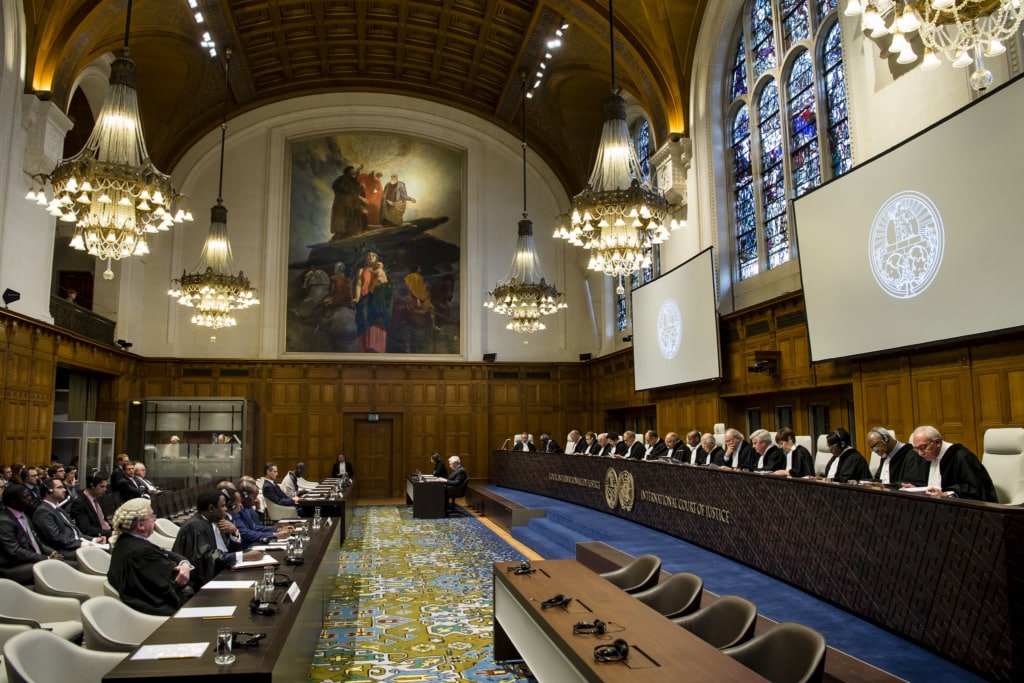Venequip 1782 Case
Section 1782, which authorizes judicial assistance to foreign and international tribunals, is a staple of transnational litigation. In a recent decision, the Seventh Circuit reviewed a lower court decision to deny a 1782 application. This case is in many ways a “typical” 1782 case, although its discussion of choice-of-forum clauses is of note. Background Very…
Continue ReadingSupreme Court Requests Response to FNC Cert Petition
The Supreme Court has called for a response in Wamai v. Industrial Bank of Korea, a terrorism-related lawsuit that was dismissed for forum non conveniens. The plaintiffs have asked the Court to consider how much deference federal courts should give U.S. plaintiffs’ choice of forum when they are joined by foreign co-plaintiffs. The Southern District…
Continue ReadingCase Brought by Jamal Khashoggi’s Widow Dismissed
Hanan Elatr Khashoggi sued Israeli spyware companies in connection with the death of her husband, journalist Jamal Khashoggi. A critic of the Saudi government, Khashoggi was killed in Istanbul, Turkey at the Saudi Arabian consulate. Last year, Judge John Bates (D.D.C.) dismissed a civil suit against Saudi Crown Prince Mohammed bin Salman on grounds of…
Continue ReadingAudio Content on TLB!
We are beginning to offer audio versions of some posts! We kick off the initiative with John Coyle’s recording of his post A Primer on Choice-of-Law Clauses. Choice of law and choice of law clauses are important issues in any legal system, ones that help students understand both contracts and civil procedure. Now students, foreign…
Continue ReadingFurther Thoughts About Terrorism Exceptions and State Immunity
As regular readers know, Iran has sued Canada at the International Court of Justice (ICJ), arguing that the terrorism exceptions in Canada’s State Immunities Act (SIA) violate customary international law. The United States also has terrorism exceptions in its Foreign Sovereign Immunities Act (FSIA) for actions against state sponsors of terrorism and for actions based on international terrorism in the…
Continue ReadingCourt Rejects Challenge to OFAC Blocking Order
Sanctions are an increasingly important part of United States foreign policy, and cases challenging them are also of growing significance. Sanctioned entities face an uphill battle in court however, as illustrated by a recent decision from the Southern District of New York: Rusaviainvest, OOO v. Yellen. Rusaviainvest, OOO (the plaintiffs) challenged an order by the…
Continue ReadingFederal Court in Nevada Allows Ethiopia Bribery Claims to Move Forward
In a fascinating decision, the District Court for the District of Nevada (Judge Richard Boulware) recently allowed civil RICO claims to proceed against a Nevada resident based on bribery in Ethiopia, while dismissing claims against Ethiopian government entities under the Foreign Sovereign Immunities Act (FSIA). Fremichael Ghebreyesus v. Federal Democratic Republic of Ethiopia not only…
Continue ReadingDrafting the Opinion in Great Lakes
Over the past six years, I have spent a lot of time thinking about choice-of-law clauses. I have written about how to interpret them, about their extraterritorial effect, about their history, and about why insurance companies frequently omit them from their policies. If a pub were ever to host a trivia night devoted to choice-of-law…
Continue ReadingNew Book on Foreign Law in Asia
Hart Publishing has just released an important new book on foreign law in Asia, edited by Kazuaki Nishioka. As regular TLB readers might recognize, I am very interested in how courts grapple with the law of foreign jurisdictions. (New paper coming soon!) In the United States, federal courts apply Federal Rule 44.1, under which foreign…
Continue ReadingAre Social Media Algorithms “Passive Nonfeasance”? What Twitter v. Taamneh Got Wrong
In the recent case of Twitter, Inc. v. Taamneh, the U.S. Supreme Court held that the plaintiffs failed to demonstrate that Facebook, Twitter, and Google knowingly provided assistance to the Islamic State of Iraq and the Levant (ISIS) in connection with its attack on the Reina nightclub in Istanbul, Turkey in 2017. The plaintiffs, family…
Continue Reading







